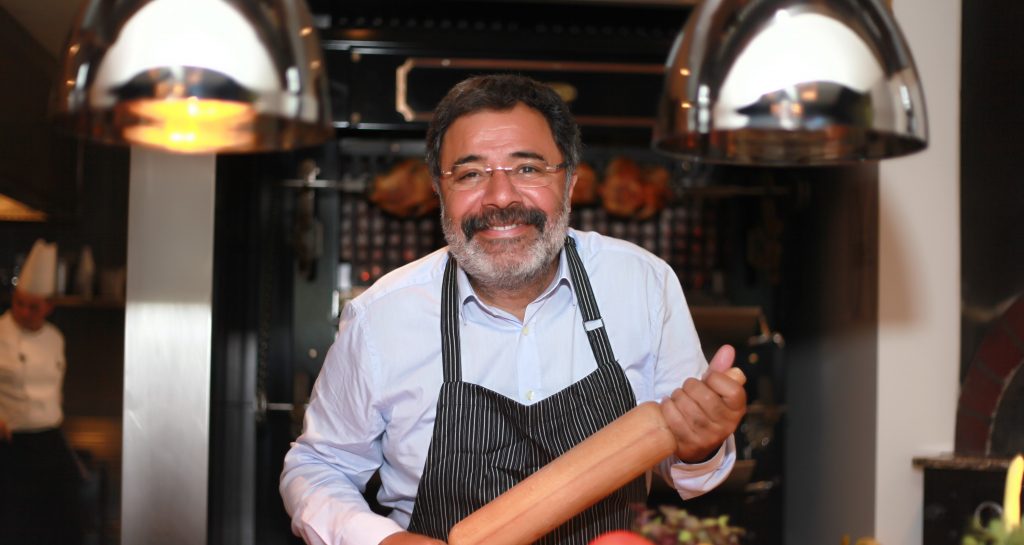Ahmet Ümit is one of the authors whom I admire the most and who has grown out from this land. How can I say, his face is as warm as his pencil. If you coincide on the street, he smiles and nods, he is gentle. And as for me, the exuberance coming along with whatever he does or tells is what is the most admiring. Whether talking about his novels, discussing about the situation of the country or talking about the Antep cuisine..no matter what, but all this comes with a huge exuberance. His vital energies are always high, his exptectations are always strong. In case you haven’t met with a novel of Ahmet Ümit yet, I shall tell you that; he describes that specific moment in ‘such’ a way that, you can feel yourself as if sweating in an archeological excavation or empathizing with a serial killer.
When you say ‘crime fiction’, it is simply indisputable for me. And so, Ahmet Ümit stands out at a much concessionary place. Besides his authorship and novels, you see how much he has collected all through his life and put them all in his pockets. So in short, if you Ahmet Ümit just for once in your life, you will never be able make without his writings.
Accompanying our delicious chatting with Ahmet Ümit; we also had the chance to cook together the cult taste of the Antep cuisine, ‘ala nazik’ in the open kitchen of Ritz Carlton with an amazing view. You can find the details of this chat in our 100th volume..
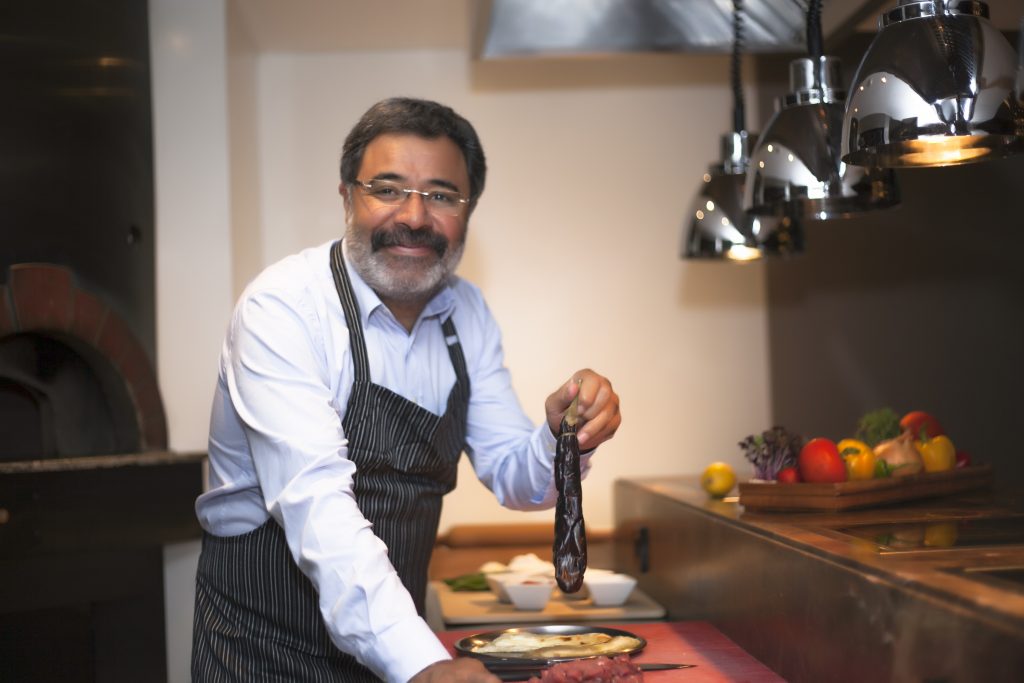
What were the dreams of the little Ahmet born in Antep, involving?
In my opinion, childhood is itself a dream. And the Antep of my childhood was in fact a dreamland. Just like the big litteraeur whom we very recently lost, Ülkü Tamer had told in his stories, ‘Alleben Öyküleri’, full of miracles. On the other way, a city where the ordinary used to flow in its own direction. What I believe is; not all of our dreams, but our capability of dreaming is what makes us the way we are.
There are three dominant cities on the turning points of your life : Antep, Moscow and Istanbul. How have these three cities influenced you? And as for an author, how important is the land he smells?
These three cities are very important for me. In one of them, I have my childhood. And in the other two, my school memories, my dreams of changing the world, my growing up and getting to know myself and the whole world. But the dominant cities are not limited to only these three. Cities such as Konya, Mardin, Urfa, Bursa, Berlin, Monastery and Thessaloniki which have been the hosts to my novels are also dominant cities for me. Fort the authors, the land he steps on; and in fact the fact that his feet standing on a land is very curicial. I think it is and it has to be the same for everyone. Just like Edip Cansever has said; “You resemble where you reside / To the water, to the land”.
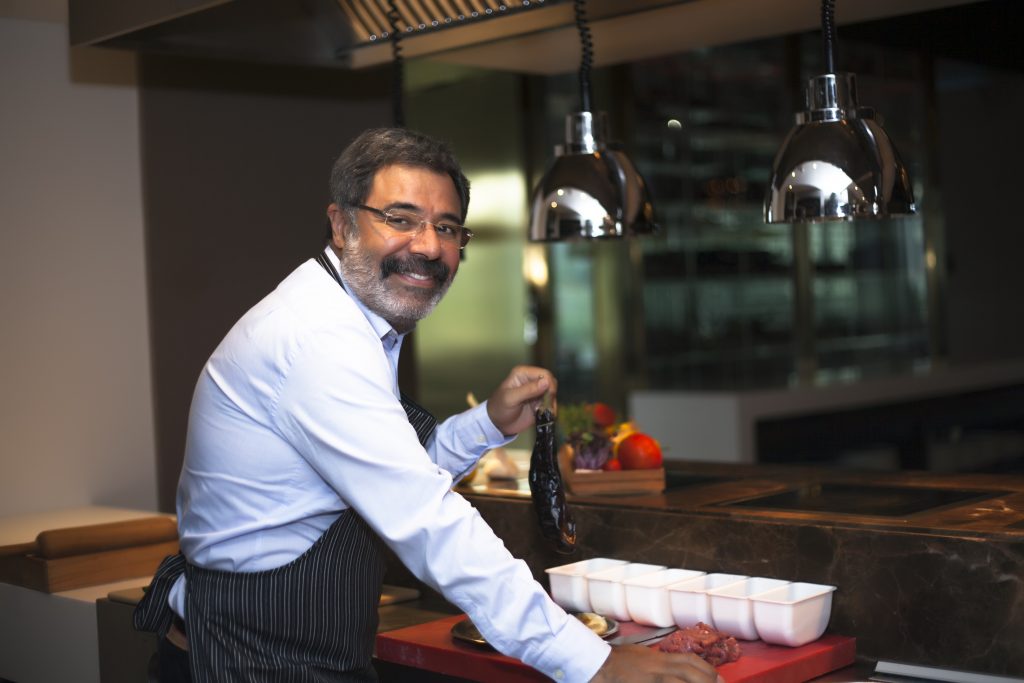
What kind of a feeling is it to leave a city, a country; the will or the obligation to escape? How does it sharpen the life of someone, and the pencil of a writer?
I left my country only for once, but for a long time to study in the Academy of Social Sciences in Moscow where Nâzım had also studied at. As we all know, the Turkish history is as well the history of exiles for the writers. I still remember how Sabahattin Ali had lost his life and had to escape from his own country. As I had mentioned his name before, we know quite well from the books and the witnesses, what Nâzım Hikmet had lived. But if we’re to speak for today and for my own life, I shall admit that I never felt hopeless. I don’t think the ‘human’ creature is “good” himself; but one of the feelings which keeps a person strong is “hope”.
You have a political standing. As for an author who can out forth his political side; does this also make his literatüre non-objective? In other words, can you write a novel by stepping on to the other side, by empathizing, with that point of view which you do not believe in? In short, how flexible can a litterateur be? Or shall he be?
I spend quite much of my literatüre life by writing about killers. And in my last book, Kırlangıç Çığlığı; I wrote abouta serial killer which also includes the suspicion of a child sexual abuse. For so many times, I wrote about people who are far distant to me both politically and in terms of their livings. This can be defined as the strength of the author’s imagination, rather than his flexibility.
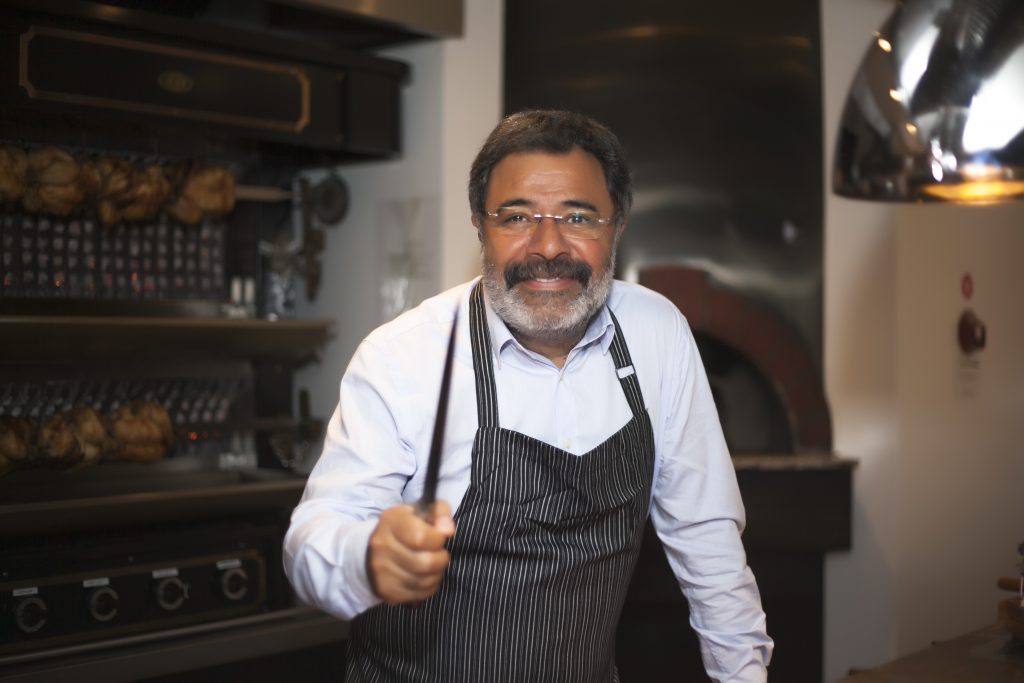
Would you still be a pencil this powerful, even if that specific story which had lit the fire of your authorship and that story being translated into 40 different languages had never happened? Is being a world-famous writer some kind of destiny or is it rather a gift earned through foresight and hard-working?
I hadn’t written that story knowing that I was being an author. I wasn’t in fully understanding of actually what I wrote was in fact a story. It is impossible to know what would happen if I hadn’t written it and it hadn’t been translated to 40 languages. Time is something which flows forward and defines itself when the time comes. Even if none of these happened, I assume I would carry on the the narration which was handed over to me from my mother. What I can primarily say about this narration turning out to be boks one day is obviously hard working. Without working, putting effort, sending time, -above all- without being a good reader and examining deeply the material called as ‘language’; you cannot end up with permanent results. This is what the history of literature tells us.
Humans are creatures containing variety of emotions inside. Each of us actually has a thief, has a police, has a prostitute, a bigot or a murderer inside ourselves. Deriven from your novels and narrowing the characters down to killers and police; now release your feelings and tell me.. Would you be a killer or a police, grown up on this land?
They have asked me questions indicating that Başkomser (chief inspector) Nevzat is in fact my alter ego and even made scientific studies on it.I see during chattings that the readers have loved Nevzat very much and even see him as one of their family members. A novel character fusing into the lives of others is something which really makes me feel good as an author. I had given an example from Kırlangıç Çığlığı, I can repeat from another perspective.As you also mentioned, humans contain a variety of feelings inside themselves. Neither too supreme nor too horrible. In fact, has both supreme and also horrible sides. A merciful person and someone destroying the nature can be the same. We wish to see less number of murderers on this land from now on, so that we can see our police rather in social responsibility projects.
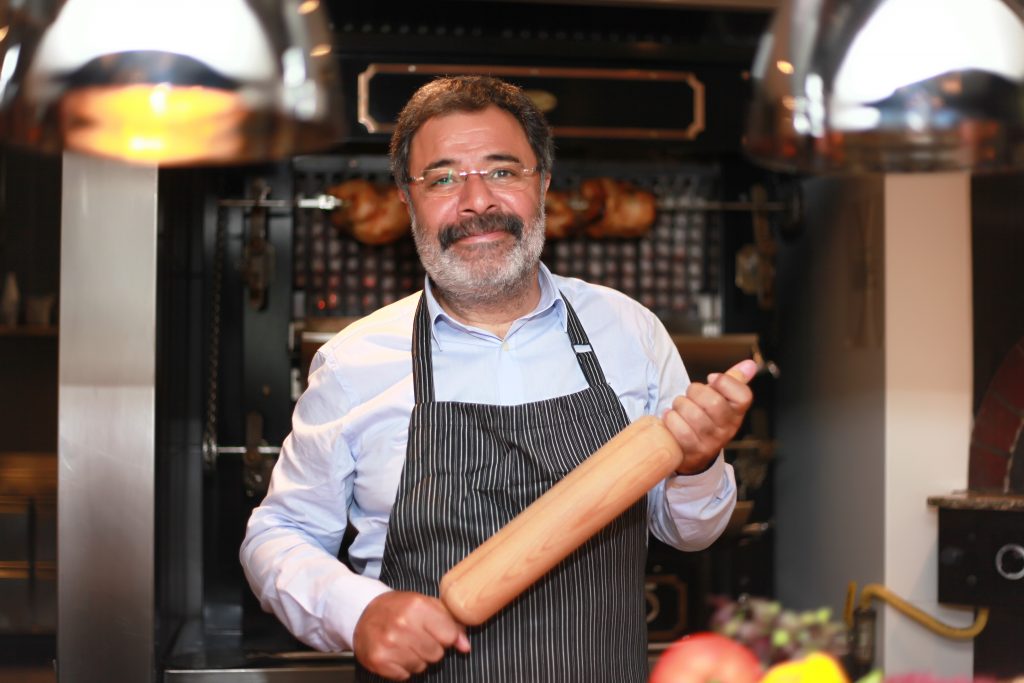
Even I have tried writing stories for a few times which I had never considered sharing with anyone. And when trying to write, I realized that due to communal attitudes; I’m trying to rasp the sharp edges of the characters and this makes it difficult for me to catch the real feeling. As someone with high mindfullness and ability to observe; do the socially acceptable norms affect the way you shape the characters in your novels?
The caharcter shall first of all convince the author. If I cannot believe that the character is a three-dimensionally being, living the way I define for her/him to live somewhere on the world; there’s no way I can maket he reader believe. Literature doesn’t have the aim to make the reader believe not in all levels or in all lines of the piece; but still if we’re to create a character and expect the readers imagine him/her; the author has to be convinced before all. Author, or an artist we shall say, is someone who watches, observes and imagines all the time and your characters first need to convince you. So keep on writing without rasping.
We know that being an activist has occupied some period of your life. Does it satisfy your activist side, standing against only by writing? Or are there times when you want to push aside the typewriter and scream and call out to big crowds?
Before Moscow, I called out to crowds quite much. I presume the crowds I’ve called out to by writing are considerably big crowds. I’m in the midst of life and I’ve never isolated myself from the heart of life. My rejections, statements and critics are always from life itself. My writings are as well..
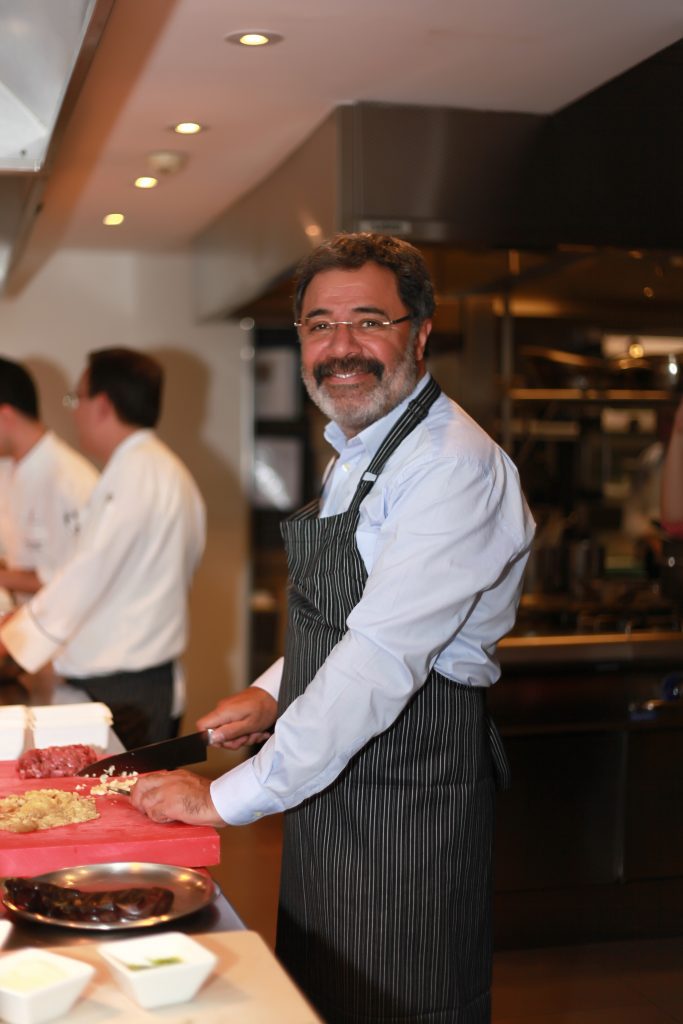
The highbrows of today are standing distant to public. On the contrary, you are a literateur and highbrow whom we can salute if we bump up in Beyoğlu for instance. How do you comprehend the first example? Why do the intellectuals who begin to earn some money prefer to isolate themselves in their palaces or choose to move abroad?
I neither wish to speak on behalf of others, nor put everyone is the same basket. As I said, I try to place myself right in the middle of the life. My office is in Beyoğlu and we know each other with the tradesmen in the neighborhood. I thank them all for they love me and greeting me when we meet. I am an author getting together with my readers as often as I can; in different cities, in conference halls, exhibitions, bookstores, etc. As
I see, many of my author friends are trying to do the same as much as they can. Once again I recommend everyone to be in life, in the heart of life.
What is the biggest disappoinment you’ve lived?
There are so many. If I begin telling, we’ll go beyond the limits of this interview. There’s no such thing as full happiness, but it’s obvious that we’re not going through the luckiest times either. It’s not surprising to have so many disappointments in this era and on this land. So I go back to the very beginning or to what I said at the beginning of this interview. There’s always the hope.
For me, the most outstanding of your novels is, “Kavim”. Of course each and every one of them is like a child of yours. But despite this fact; for you which of those stands out?
It’s really a traditional phrase to say, “each of them is like my child”, an deven I might have said the ame somewhere (laughing). I also like Kavim.You know, there are two types of novels for us; one of them is thesis novels which are deriven directly from history and require long periods of preparation. The other type is the ones using all the opportunities of crime fiction, in other words, the “Başkomser Nevzat novels”.I feel more at ease with Başkomser Nevzat novels because there is no longer the need to define the characters, the psychological analyses, the setting, who the side characters are and etc. It can be comprehended like a political answer but for me, the most special novel is the one I’m writing as of the moment. For instance, the one I began writing right after Kırlangıç Çığlığı, which I’m fully focused on nowadays, is extremely special for me.
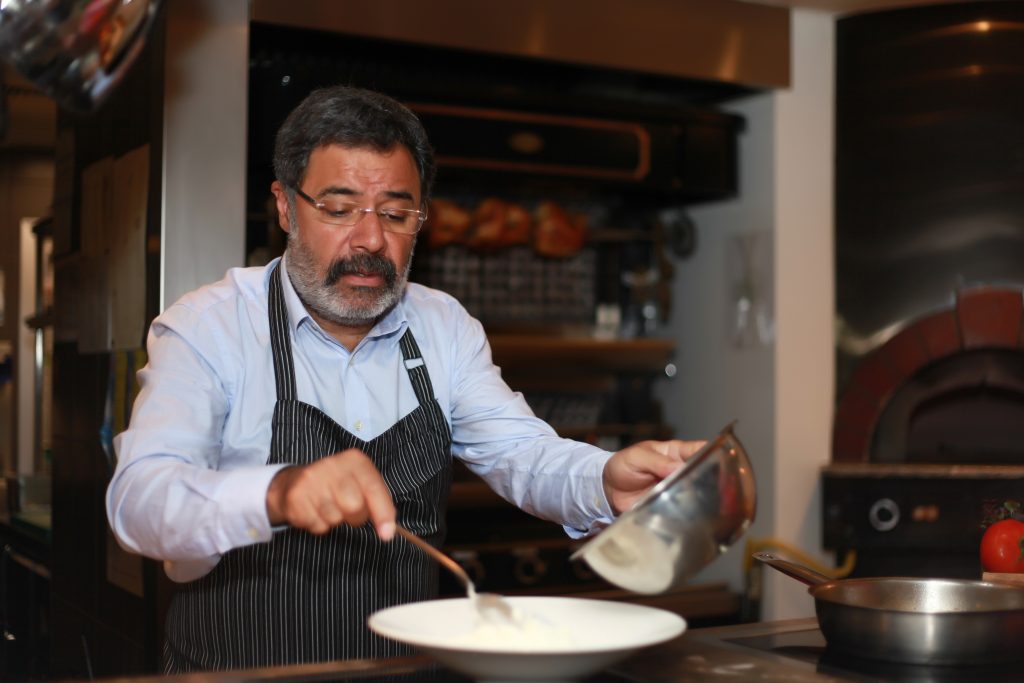
Are the new adventures of Başkomser Nevzat ahead?
We’re good fellas with Nevzat! We’re gonna live so many adventures together.
I’ve read almost all your novels and if I’m mistaken, the killer always happens to be a male at the end. Why do you not write about a female serial killer? Can you not put together the intelligence and spirit of a woman with violence? Or is there another reason behind it?
You know, there’s a weird belief that “there’s not a serial killer in Turkey” as if being a serial killer is something to be appreciated but unfortunately we’re lacking it! I’m saying the same thing for years : The idea of a serial killer is a concept imported from the States and it is a deception that if someone who killes hundreds of people is a serial killer. The murderer there is a lonesome person, but here we have quite lively traditional relations. I do not classify people as males and females when writing my novels. But still I’ll keep what you said in my mind, thank you for it.
You’re writig crime fiction and in the set-up of your novels, love always stands up at a naive point. Would you consider writing a love fiction one day?
In literature and in arts generally, we are in an era where the styles are miscegenating and intertwining and new experiments are being tried fearlessly. For some readers, I’m in fact writing love novels. Actually there’s no single novel of mine which doesn’t contain love in it. My first published book, Sokağın Zulasıwas a poetry book.For the readers who have been following me since then, I’ve been an author who has never diverged from love. Even when I’m telling the toughest issues with a harsh tone; love always stands right in the middle of the story. Isn’t life the same? What can ever be distant from live?
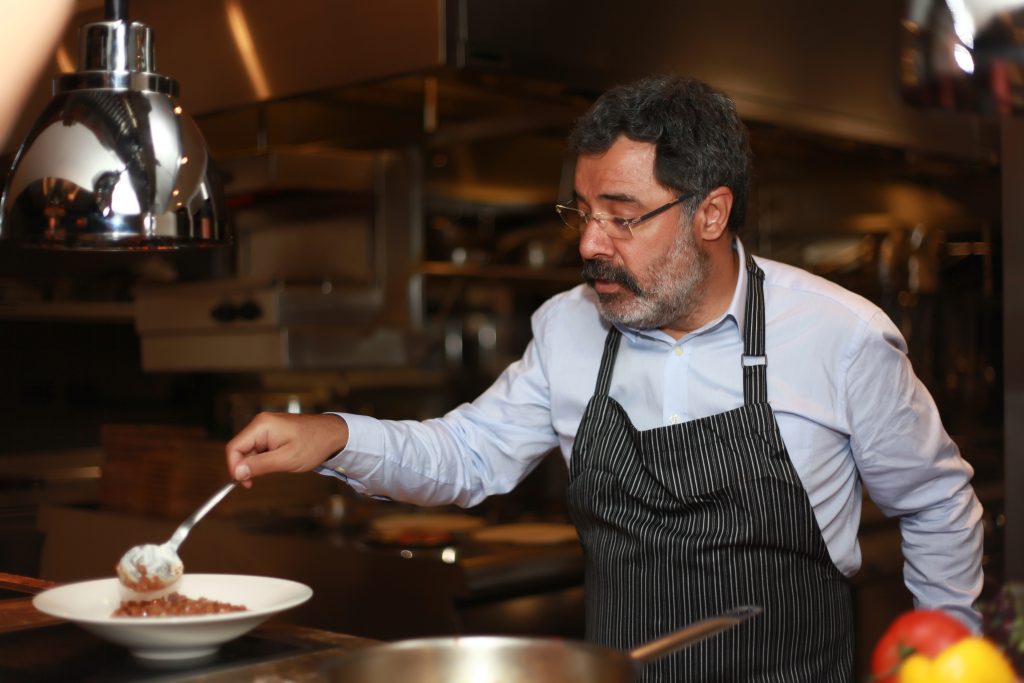
Today we cooked with you in the kitchen. How is it in the kitchen for you? Is it inportant for you to gather around a table?
The dining tables stand at a very precious spot in my memory. We are seven brothers. Our father used to be a religious man. And I’ve been a leftwinger since my highschool years, so my brothers. You cannot imagine what used to be discussed arıund those large dining tables.. Politics, religion, neighborhood relations, future, past, today.. Everything, the whole world used to surround us all. And all through my life, I never forgot neither what we discussed on those tables nor our lustiness for bor both food and talking. I’m good in kitchen by the way; I love both cooking and eating.
We all know that the Antep cuisine is very rich. As an author from Antep, what would you like to tell us about the Antep Kitchen and the culture of Antep?
Antep is city of fairytales for me. And it’s not a coincidence, but there used to be fairytale tellers in Antep during 1930’s and I listened so many fairytales from my mother. Antep is a real festivity; there are people from different nations. It’s archaic, it’s in relation with the neighbors and it means borders. And its kitchen is also very colorful. What I mean is not only kebab and meat; Turkish, Kurdish, Arabic, Greek, Armenian, Jewish impacts have all gotten together and an amazing cuisine has been created. And this cuisine is offically certified by UNESCO.
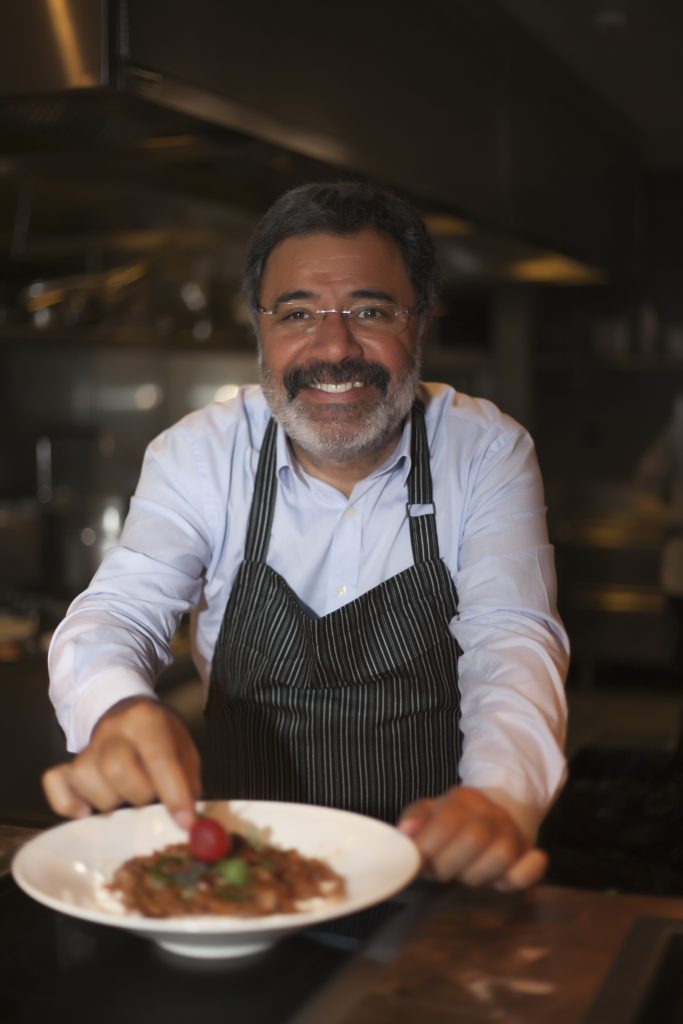
What can you tell us about Istanbul and Beyoğlu? Do you think Beyoğlu can go back to its old days?
Beyoğlu has reborn from its own ashes several times. Some time ago, we visited Beyoğlu together with the readers for a newspaper. You can’t imagine the interest this project got from people. I’m not saying the people who stopped us there. The videos of the projects were watched for hundred thouands of time. People really love
Beyoğlu and still try to protect it. We all have our responsibilities for Beyoğlu and as I said, Beyoğlu has reborn from its ashes so many times and it can do it once again.




